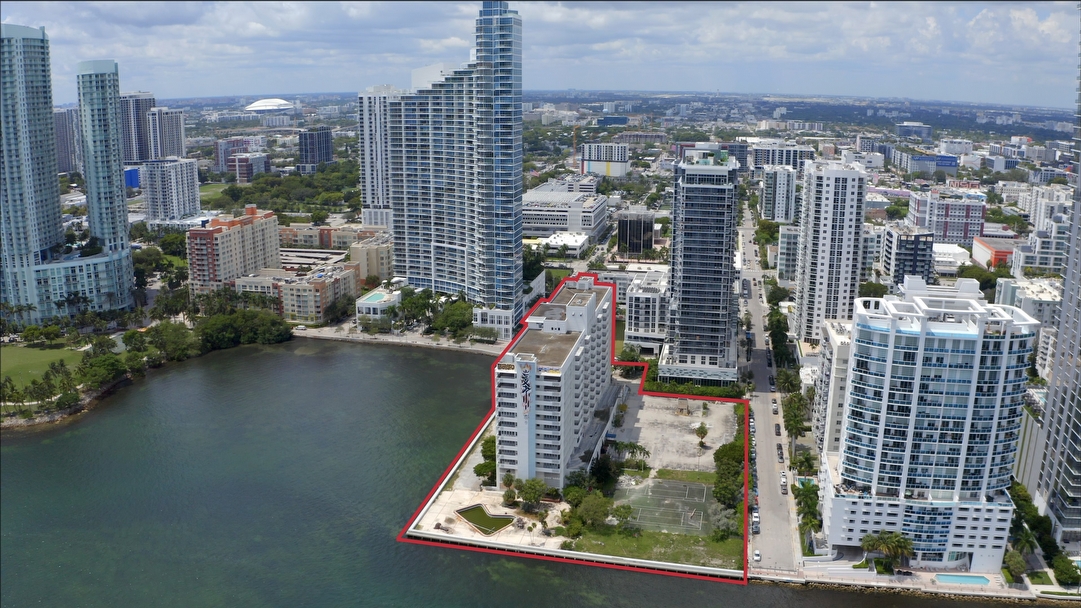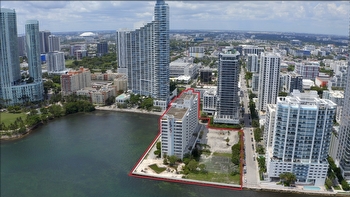Florida Supreme Court Upholds Owner Rights, Denies Appeal in Landmark Biscayne 21 Condo Termination Case
In a landmark decision with significant implications for Florida's real estate market, the Florida Supreme Court has denied a request to review the case involving the Biscayne 21 condominium, effectively upholding a lower court's ruling that sided with a small group of holdout owners against a major development plan. The decision brings a new level of clarity to condominium termination law and reinforces the contractual rights of individual owners, potentially reshaping how developers approach aging condo buildings across the state.
The closely watched legal battle pitted Two Roads Development against a handful of residents at the Biscayne 21 tower, a 192-unit building located on a prime piece of waterfront property in Miami's Edgewater neighborhood. The developer's plan to terminate the condo association and replace the 1960s-era building with a trio of luxury high-rises has been halted, sending a clear message about the sanctity of a condominium's original governing documents.
The Heart of the Dispute: Unanimous Consent vs. Supermajority Rule
The core of the legal conflict centered on the condominium's original 1974 declaration, which required unanimous, 100% approval from all unit owners to terminate the condo association.
Beginning in 2022, Two Roads Development, through its affiliate TRD Biscayne LLC, began a multi-million dollar buyout, eventually acquiring nearly 95% of the units in the building. After taking control of the condo's board, the developer moved to amend the governing documents, lowering the termination threshold from 100% to 80%—a figure consistent with Florida's current Condominium Act for optional terminations.
However, a small group of eight holdout owners, represented by attorney Glen Waldman, refused to sell. They filed a lawsuit, arguing that the developer's move to change the voting rules was an illegal violation of their contractual rights. Their position was that their individual "veto power," guaranteed by the original declaration, could not be stripped away by a supermajority vote.
While a lower court initially sided with the developer, the Third District Court of Appeal (DCA) reversed that decision. The appellate court's decisive ruling found that altering the unanimous consent requirement was a material violation of the holdout owners' voting rights. The court essentially affirmed that the developer could not retroactively change the foundational rules of the agreement that all owners had entered into.
Supreme Court's Denial Solidifies a Major Precedent
Two Roads Development sought to have the case heard by the Florida Supreme Court, arguing the issue was of "great public importance" due to its potential impact on redeveloping aging condo buildings—a pressing issue in Florida, especially after the tragic collapse of Champlain Towers South in 2021.
By declining to take up the case, the Florida Supreme Court leaves the Third DCA's pro-owner ruling as the standing precedent. This decision has several critical implications:
1. Strengthens Individual Owner Rights: The ruling confirms that original condominium declarations are powerful contracts. If a declaration requires unanimous consent for a major action like termination, that right cannot be easily amended away, even if current state law allows for a lower threshold.
2. Increases Challenges for Developers: The decision creates a significant hurdle for developers and bulk buyers targeting older condo buildings for redevelopment. They can no longer assume they can amend governing documents to force a termination. This will likely lead to developers offering more favorable buyout terms to secure 100% participation or avoiding buildings with unanimous consent clauses altogether.
3. Impacts the Future of Aging Condos: In the wake of stricter safety and reserve funding laws, many older condo associations are facing immense financial pressure. For some, a developer buyout is a welcome exit strategy. This ruling may complicate that path, potentially leaving some buildings in limbo if a small number of owners can block a sale desired by the vast majority.
What Happens Now at Biscayne 21?
With the legal battle seemingly at its end, the future of the Biscayne 21 property is uncertain. The building currently stands empty and uninhabitable, as many units were stripped in preparation for a demolition that never happened.
The holdout owners have stated their intention to pursue further legal action to compel Two Roads Development to repair the building, allowing them to return to their homes. The developer is now faced with the immense cost of either restoring the building or negotiating a buyout with the remaining owners at a price that could be significantly higher than their original offers.
The Biscayne 21 case has become a poster child for the complex and often contentious process of condominium termination in Florida, highlighting the delicate balance between redevelopment needs and the sacrosanct property rights of individual homeowners.
THE BRIAN C. SMITH GROUP BERKSHIRE HATHAWAY HOMESERVICES EWM REALTY
Brian C. Smith
Mark Mattsson
Diane Daley
Michael Warshower
Andrew Tassara
Bella Dastjerdi
Jamoris Slaughter***
312.838.1070***
“A referral to a friend is always appreciated and welcome.”
Ready to Explore Luxury Real Estate in Miami?
Don't miss opportunities in one of Florida's most desirable markets. Contact Brian Smith today for exclusive access and personalized service.



